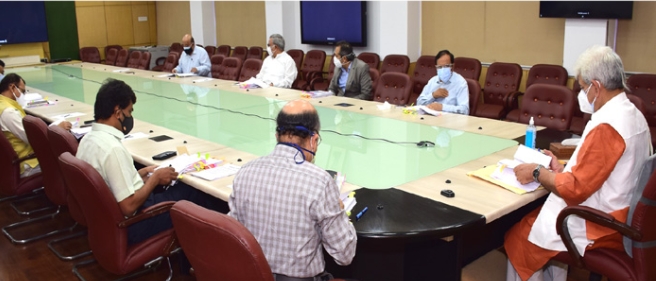Jammu:The Administrative Council under the chairmanship of the Lieutenant Governor, Manoj Sinha today approved the implementation of the high-density plantation nurseries scheme for private entrepreneurs and start-ups in the horticulture sector. The scheme will be in force for a period of 5 years.
The new scheme in line with the Atmanirbar Bharat Abhiyan, will provide 50% subsidy through direct benefit transfer to entrepreneurs for establishing high-density plantation nurseries to locally developed rootstocks. It will substantially reduce the cost of obtaining planting material by doing away with the need of keeping the imported plants in quarantine for 2 years before their transplantation, besides reducing the mortality rate of imported rootstocks.
The farmer-centric scheme will be implemented for apples, walnut, almond, cherry, litchi, and olive among others. It will give a boost to employment opportunities by creating more than 0.6 million man-days jobs per year and will make the sector self-reliant in terms of inputs required for high-density plantations.
The shift to high-density plantations is expected to make horticulture hugely profitable through superior and higher yields per hectare, early harvest, and introduction of insect and pest resistance varieties- invariably saving the expenditure on disease and pest control. It will go a long way in enhancing the quality and quantity of horticulture produce for doubling the farmer’s income.
rs for establishing high-density plantation nurseries to locally developed rootstocks. It will substantially reduce the cost of obtaining planting material by doing away with the need of keeping the imported plants in quarantine for 2 years before their transplantation, besides reducing the mortality rate of imported rootstocks.
The farmer-centric scheme will be implemented for apples, walnut, almond, cherry, litchi, and olive among others. It will give a boost to employment opportunities by creating more than 0.6 million man-days jobs per year and will make the sector self-reliant in terms of inputs required for high-density plantations.
The shift to high-density plantations is expected to make horticulture hugely profitable through superior and higher yields per hectare, early harvest, and introduction of insect and pest resistance varieties- invariably saving the expenditure on disease and pest control. It will go a long way in enhancing the quality and quantity of horticulture produce for doubling the farmer’s income.


